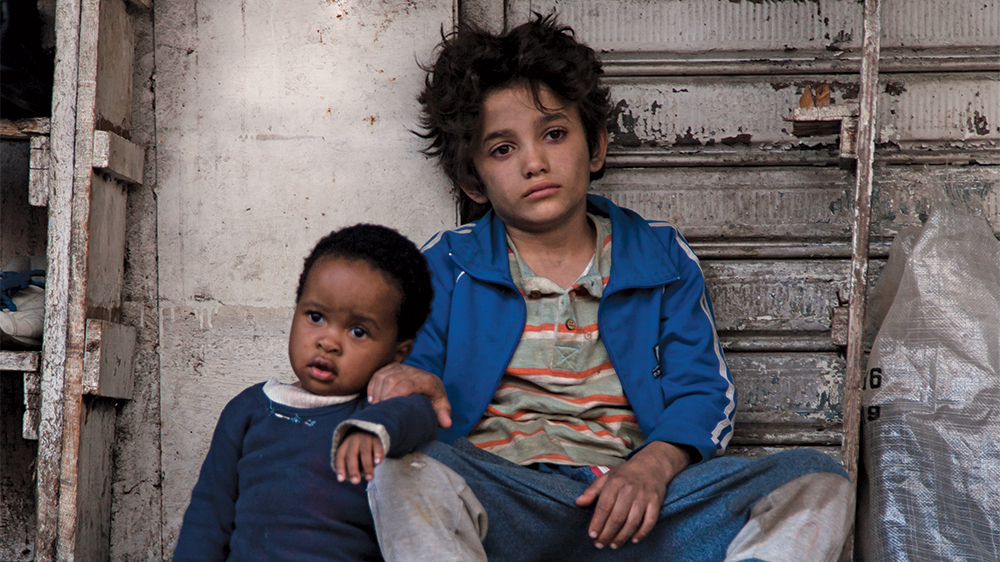“Capernaum” – “I want them to stop having children.” – Zain (Zain Al Rafeea)
This is Zain’s plea/wish/demand that he utters in a Lebanese court of law. He is about 12-years-old, but this child does not know his age. Miraculously, his mother and father cannot pinpoint his date of birth either. The family lives in poverty, and Zain and his siblings suffer from their parents’ neglect and ineptitude.
Hence, Zain sues his parents for giving birth to him.
This heartbreaking declaration defies comprehension, but since director/co-writer Nadine Labaki illustrates the living nightmare that this little boy endures, Zain’s thought process has undeniable merit.
“Capernaum” is a brutal and painful 2-hour 1-minute slog on Beirut’s streets, where our lead suffers from economic destitution and emotional neglect. Lebanon does not corner the market on impoverishment, because Labaki’s story could be set in just about any large American city, but she was born in Beirut.
When speaking at the Toronto International Film Festival (TIFF) in Sept. 2018, Labaki said, “The film is the result of four years of research. I went to many places in Lebanon and spoke to many children, and what you are going to see is really inspired by things that they told me. Unfortunately, the reality is sometimes harsher than (the events) in the film.”
She captures these moments at ground level by following a young boy’s desperate journey – as Zain leaves his home and wanders around a concrete jungle – to discover any other sensation than absolute misery. This young actor wears his character’s emotions on his sleeve, because Zain looks nothing but tired. Weathered, actually. While asking random strangers for work or attempting to sell various finds on sidewalk markets, he carries a constant aura of discontent. He also seemingly wears layers of dust and dirt, like “Peanuts” Pigpen, but Schroeder is nowhere in sight to lighten the mood with his famous “Linus and Lucy” melody.
Zain, however, does discover some moments of joy, but they eventually lead to an even more hopeless fate: he somehow becomes the guardian of a toddler named Yonas (Boluwatife Treasure Bankole). With no other answers, he places the child in an improvised wagon constructed of a skateboard and a large pot – as seen on the film’s theatrical poster – and they loiter through a maze of boulevards.
Yes, the film blatantly reveals the reasons for Zain’s state of affairs, but even though his parents Souad (Kawsar Al Haddad) and Selim (Fadi Yousef) are the lead antagonists, Labaki generates sympathy for them as well. This small, brief groundswell of compassion for Zain’s folks feels like a minor miracle, while the film reinforces that coarse civic and cultural environments are co-conspirators for this family’s current despair. In an alternative universe, Souad, Selim, Zain, and Yonas might lead very different lives, however, “Capernaum” is not science fiction. It is reality.
As soon as the filmed ended, a woman turned to this critic and said, “This movie destroyed me.”
Same here.
⭐⭐⭐ 1/2 out of ⭐⭐⭐⭐
Image and Trailer Credits: Sony Pictures Classics




